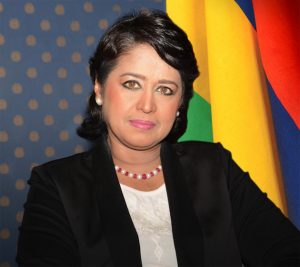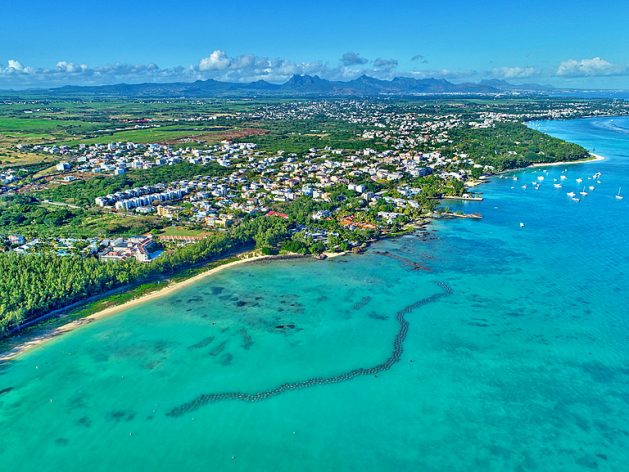PORT LOUIS, Sep 04 (IPS) – The Africa Climate Summit 2023 is expected to start with renewed hope. In its 60+ years of post-independence history, Africa has contributed around 3% of Green House Emissions, accounts for approximately 2.6% of global trade, and less than 3% of the world’s GDP in 2021.
Home to 1.4 billion people with a median age of 16, the continent continues to suffer from stalling multilateral trade negotiations, and the ‘death of the Doha round’ has given rise to unprecedented forms of protectionism, unilateralism, a lack of political leadership to embrace and nurture multilateralism. Unfair competition, unilateral partitioning of Africa into Economic Partnership Agreements (EPAs), and skewed intellectual property rights have resulted in an international trade system that disproportionately favours wealthy economies.

The emerging trade-climate change measures will only further restrict Africa’s participation in global trade markets. So, to tackle the looming climate crisis, the question is as follows: Should Africa still depend on the ‘generosity’ of the global north? Their inability to meet the $100 billion pledge reveals their moral reluctance to acknowledge developed countries’ contribution to climate change.
Yet to transition to a greener future, Africa must access affordable public and private funding, coupled with debt relief. These shifts are central to building capacity for sustained transformative growth and resilience in the face of climate challenges.
Developed countries have resisted fundamental reforms to support the developing world with the climate emergency. Innovative global development finance ecosystems are needed to unlock equitable international financing flows while preserving the fiscal sovereignty of developing countries to pursue development pathways unique to their circumstances and realities.
Africa’s position is constrained by a lack of affordable, reliable, and sufficient finance, juxtaposed with a debt crisis compounded by climate challenges. Rather than allocating increased funds to adaptation efforts, the majority of it gets directed towards mitigation which benefits financiers and lenders and thus depriving countries of a voice.
Africa’s economy is vulnerable, especially post-pandemic. The external debt has exceeded $1 trillion in 2021. It detracts from African governments’ ability to sustain meaningful socio-economic gains. Those with a pessimistic view of Africa tend to label the debt issue as an African problem disconnected from the exploitative policies of developed nations, but the true concern lies with the developed nations. They possess significant privileges to issue global reserve currencies leading to highly imbalanced distribution of international liquidity, as well as exorbitant interest rates and capital outflows driven by the monetary policies of affluent economies.
So, whenever faced with liquidity constraints, Africa has no choice but to turn to the World Bank and International Monetary Fund (IMF) to boost foreign exchange reserves. In the international arena, climate financing is becoming more commercial than concessional.
The USA is hindering the recapitalisation of the World Bank for geopolitical considerations with the unfortunate outcome of deepening structural gaps and costly financing for Africa. Thus, Africa is compelled to seek loans from commercial entities with the high cost of borrowing impeding investments.
The issuance and recycling of SDRs issued by the IMF as a means for enhancing available climate finance is drawing global attention. IMF’s re-channelling of idle SDR should be used to help developing countries with much-needed finance.
The Bridgetown Initiative encapsulates many such proposals, including the restoration of debt sustainability; long-term debt restructuring with low interest rates; increase in official sector-development lending; mobilise more in green private sector investment; reform the trade system to support global green and just transformations.
African countries are paying an unnecessary premium on their cost of capital and not attracting sufficient foreign direct investment (FDI), especially in innovative areas and for global public goods. Africa’s fiscal and tax architecture suffers from vulnerabilities, while the global tax system is still built on historic power asymmetries.
Developed countries largely devised international rules that resonate with their own economic interests. Furthermore, the application of Base Erosion and Profit Shifting (BEPS) strategies, the digital economy, and climate-related measures, such as the European Union’s (EU) Carbon Border Adjustment Mechanism (CBAM), undermine multilateral approaches and affect the fiscal sovereignty of African economies.
Voluntary carbon markets, including the Africa Carbon Markets Initiative, Sovereign wealth funds could unlock much-needed finance for undervalued assets and services. Africa’s own development banks, the partnership and investment proposed by the BRICS/New Development Bank, and the private sector are also essential sources of long-term financing, and tapping into them could enable Africa’s self-directed growth.
There is a globally recognised need to shift, unlock, scale, and mobilise new forms of ‘fit for purpose’ finance to deliver on climate agreements and sustainable development goals. The priority of priorities for African countries is affordable, predictable, accessible finance at scale.
Finally, in building a financial infrastructure that is relevant for all, African countries should not be passive receptors of international reforms and debates.
They must have the authority to lead in the direction they choose; they must have that voice and, more importantly, the collective interests at local, regional as well as at the international level.
It is only then that Africa will be compensated for the harm that it did not commit!
Note: Ameenah Gurib-Fakim is the former President of the Republic of Mauritius (2015-2018)
IPS UN Bureau Report
Follow @IPSNewsUNBureau
Follow IPS News UN Bureau on Instagram
© Inter Press Service (2023) — All Rights ReservedOriginal source: Inter Press Service
Check out our Latest News and Follow us at Facebook
Original Source

